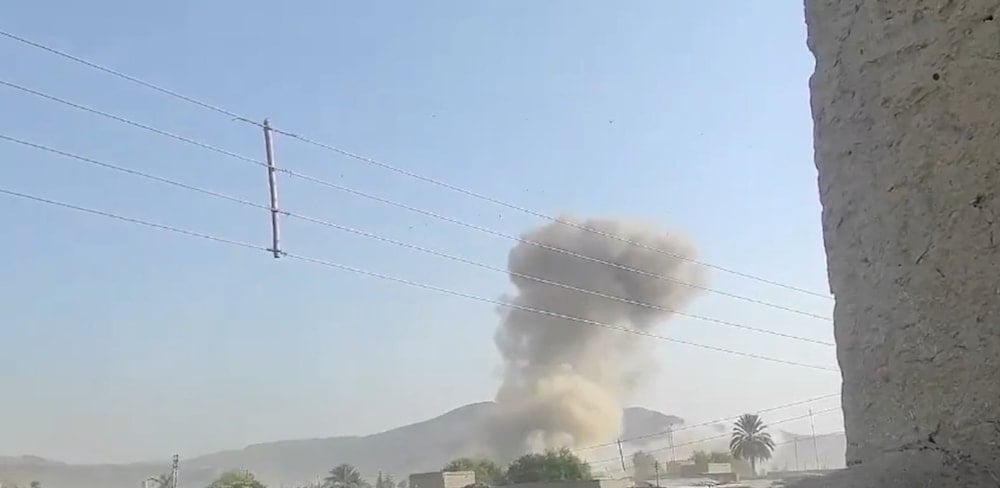6 soldiers, 6 militants killed in suicide bombing in Pakistan
At least six Pakistani soldiers and six militants were killed in a suicide bombing near the Afghanistan border, as a fragile ceasefire nears its end.
-

Smoke rises following a suicide attack on Khadi Fort on the Pakistan-Afghanistan border, Pakistan, October 17, 2025. (Social media)
At least six Pakistani soldiers and six militants were killed in a suicide bombing near the country's northwestern border with Afghanistan on Friday, as a temporary ceasefire between Islamabad and Kabul neared its expiration. The attack took place at Khadi Fort in North Waziristan, a key military outpost in a region long plagued by militant activity.
A police officer in Mir Ali, Meraj Khan, told Arab News that a militant drove an explosives-laden vehicle into the fort, triggering a fierce gun battle between militants and security forces.
"Security forces swiftly responded, repelling the attack and engaging the terrorists in a fierce battle. Sadly, six security personnel were martyred and over a dozen others sustained injuries," Khan said. He added that six militants were killed during the confrontation, and a clearance operation was underway.
The attack comes amid a tense pause in Pakistan-Afghanistan border confrontations, with a 48-hour ceasefire set to expire at 13:00 GMT (16:00 GMT+3) on Friday. The fragile truce followed days of intense ground fighting and airstrikes launched by Pakistan across the contested frontier. The violence left dozens dead and hundreds injured, marking the worst fighting between the two neighbors in decades.
Tensions erupted after Islamabad accused the Taliban-led government in Kabul of allowing Tehreek-e-Taliban Pakistan (TTP) militants to use Afghan territory to launch cross-border attacks. In response, Pakistan carried out retaliatory airstrikes, escalating the crisis further.
Islamabad accuses Kabul of harboring militants
Pakistan’s state media reported on Friday that 88 TTP militants were killed in separate military operations over the past two days. The surge in activity followed a series of deadly attacks within Pakistan, prompting Prime Minister Shehbaz Sharif to publicly state that the country had "retaliated" after losing patience with what it sees as Kabul's failure to act against militants.
Sharif also expressed readiness to hold talks to defuse tensions and prevent a broader conflict.
The Taliban government in Kabul has denied harboring TTP fighters and instead accused Pakistan’s military of provoking the crisis by spreading misinformation and sheltering Daesh-linked militants to destabilize Afghanistan.
Both sides have rejected each other’s claims, and there has been no indication of a long-term agreement to resolve the escalating violence.
The recent escalation has drawn the attention of Saudi Arabia and Qatar, both of which have moved to mediate between the two sides in an attempt to prevent further bloodshed.
Although the Pakistan-Afghanistan border has long been volatile, the intensity of this month’s fighting, along with the suicide bombing in North Waziristan, highlights the growing instability in the region and the risks of a prolonged conflict between the two countries.

 3 Min Read
3 Min Read










